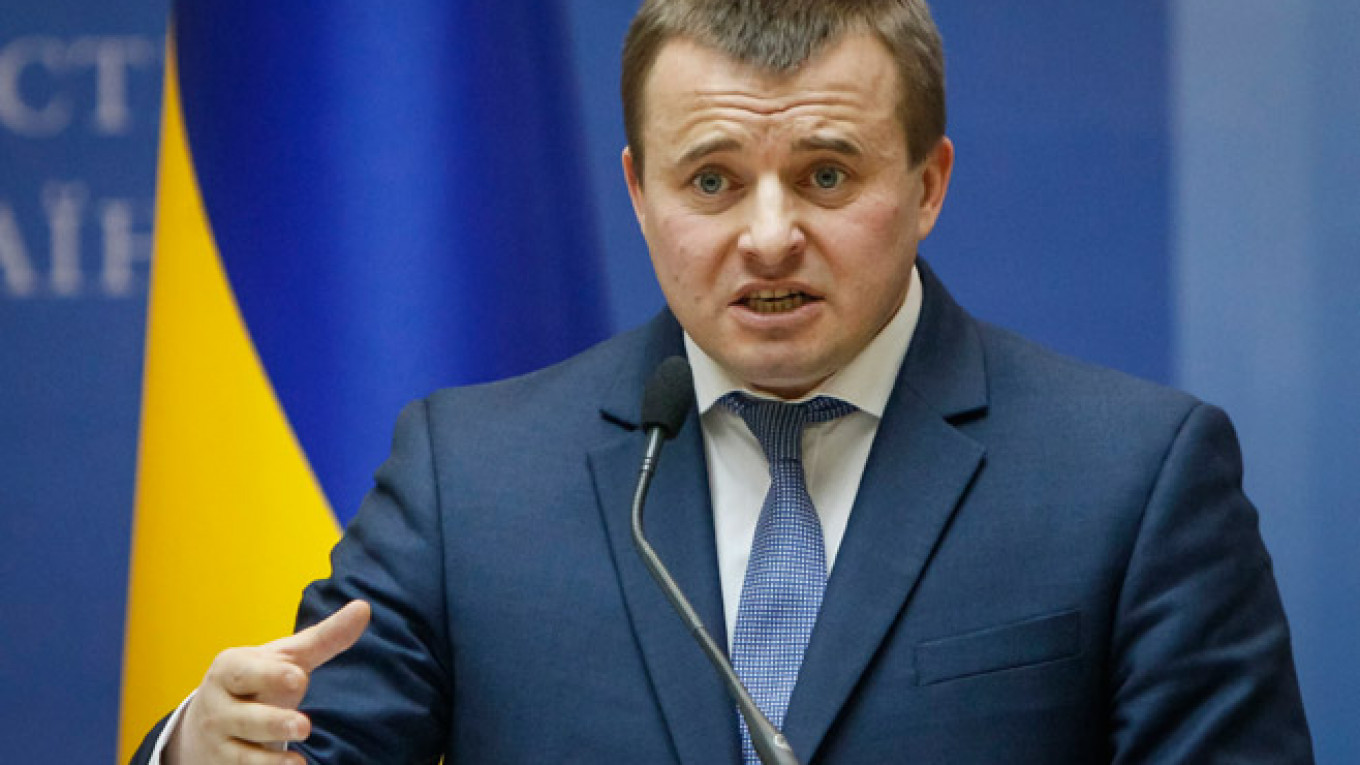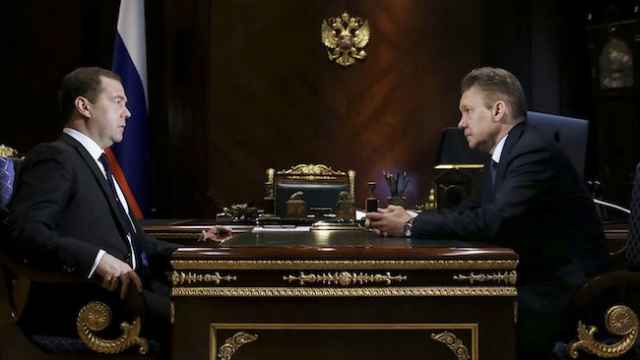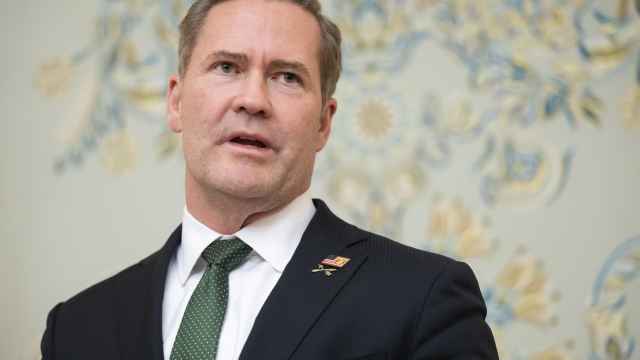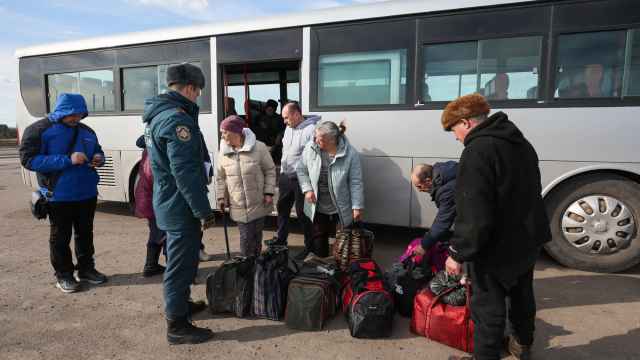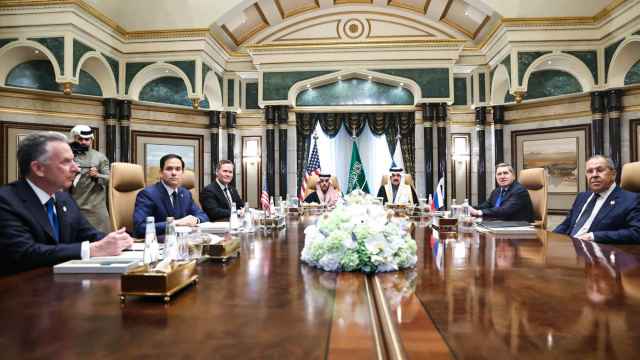BRUSSELS — Ukraine is confident Russia will have to sharply lower the price it charges Kiev for gas as increased imports from the European Union have greatly reduced Ukraine's reliance on supplies from Gazprom, Ukraine's energy minister said on Saturday.
Volodymyr Demchyshyn was speaking after gas supply talks in Brussels on Friday with Russia and the European Commission.
As expected, the meeting stopped far short of a deal, but the three sides said the atmosphere was constructive and they would meet again next month.
Under the current agreement, Ukraine pays $329 per thousand cubic meters for gas in the first quarter and Russia has said the price will rise to $348 after that.
Russia understood that "in order to be competitive they need to go below $250," Demchyshyn said in an interview. "I estimate the reasonable price that we will end up [at will be] between $240 and $250."
With energy prices falling, he said he expected the gas price to fall to $210-$220 in the third quarter.
Russia has cut off gas supplies to Ukraine three times in a series of price disputes over the past decade. But Demchyshyn said increased imports from the EU, together with falling gas consumption in Ukraine and weak energy prices, had strengthened Kiev's bargaining position.
"The Russian side understands that they need to be price competitive. As long as their price will be higher than the market price — the price for the gas that we can get from Europe — we won't need Russian gas," he said.
The commission, the EU executive, brokered an accord last October to keep gas flowing over the peak-demand winter months despite icy relations between Kiev and Moscow over the war in eastern Ukraine between government forces and pro-Russian rebels.
Stockpiling
Russia and Ukraine are discussing a new pricing arrangement once the current package expires at the end of March. Ukraine and the commission hope for an agreement that would include next winter.
The EU relies on Russia for about a third of its gas, some 40 percent of which is shipped via Ukraine, meaning any disruption to Kiev's supplies can affect the EU.
Demchyshyn said Friday's talks made "fairly reasonable progress" and his next meeting with Russian counterpart Alexander Novak would probably be in Berlin in mid-April.
He said Ukraine had increased the volume of gas it could import from EU countries under so-called reverse flow arrangements, "so now … Ukraine can get through the winter without any specific large volume to be required from the Russian side."
Last year, Ukraine greatly reduced its use of Russian gas, but the European Commission believes it cannot do without Russian gas altogether.
Ukraine estimates its needs for next winter at 15 billion cubic meters but plans to build up its stocks to 19 billion before the winter, Demchyshyn said.
Ukraine is demanding that Gazprom increase transit fees it pays to Ukraine. Ukraine and Moscow must also discuss the thorny issue of who pays for gas supplies to separatist-held areas of east Ukraine.
Asked if reaching a long-term agreement would improve relations with Russia, Demchyshyn said: "It won't impact geopolitics but geopolitics will definitely impact this deal."
A Message from The Moscow Times:
Dear readers,
We are facing unprecedented challenges. Russia's Prosecutor General's Office has designated The Moscow Times as an "undesirable" organization, criminalizing our work and putting our staff at risk of prosecution. This follows our earlier unjust labeling as a "foreign agent."
These actions are direct attempts to silence independent journalism in Russia. The authorities claim our work "discredits the decisions of the Russian leadership." We see things differently: we strive to provide accurate, unbiased reporting on Russia.
We, the journalists of The Moscow Times, refuse to be silenced. But to continue our work, we need your help.
Your support, no matter how small, makes a world of difference. If you can, please support us monthly starting from just $2. It's quick to set up, and every contribution makes a significant impact.
By supporting The Moscow Times, you're defending open, independent journalism in the face of repression. Thank you for standing with us.
Remind me later.


